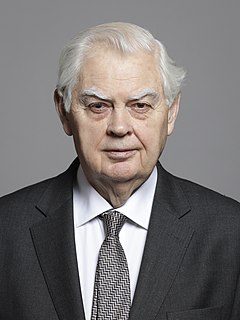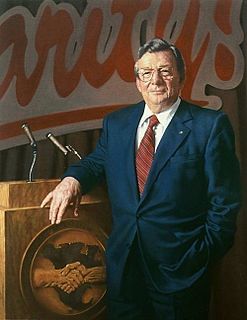A Quote by Jeane Kirkpatrick
I'm a political scientist and I study these things, and I know that economic problems, with the rising unemployment and inflation and low productivity and so forth, were a factor in that election, in that defeat of President Carter.
Related Quotes
Inflation is certainly low and stable and, measured in unemployment and labour-market slack, the economy has made a lot of progress. The pace of growth is disappointingly slow, mostly because productivity growth has been very slow, which is not really something amenable to monetary policy. It comes from changes in technology, changes in worker skills and a variety of other things, but not monetary policy, in particular.
In the name of compassion, Obama advocates seemingly endless extensions of unemployment benefits because his economic theology holds that by paying people not to work, you will create jobs. It not only fails to factor in the obvious deterrent that extended benefits have on their recipients but also falsely assumes that transferring money from one pocket to the next generates more spending - by some mythical multiple factor, no less. Back on planet Earth, studies reveal that extending unemployment benefits results in more unemployment.
The Democrats loved Jimmy Carter, even though - and, by the way, take a look at some economic circumstances. In 1980, the economy of this country was in the tank after four years of Jimmy Carter. I mean, it was desperately bad. Unemployment was sky-high. Carter had seen us through a couple of near-depression recessions, all of this coming out of Watergate, which happened in 1972.
For equity markets, the combination of low interest rates, strong economic growth and low inflation has proved very beneficial, with global share markets rising solidly in each of the past three years. This has been underpinned by strong growth in profits so that, notwithstanding the rise in share prices, P/E ratios have been declining on average.
We in America were worried about many problems dealing with economic inequality and political inequality. The Communist Party seemed to be the only political force, both concerned and willing, to take action to stop the threat of fascism abroad and to work for economic and political reform in this country.
The skills and productivity of American Workers, not to mention the taxes they pay, are the greatest economic resource our country has. To condemn large numbers of them to unemployment, to deprive the Treasury of their tax contributions and to force them to live on unemployment at public expense is the most expensive luxury any society ever chose to buy.








































